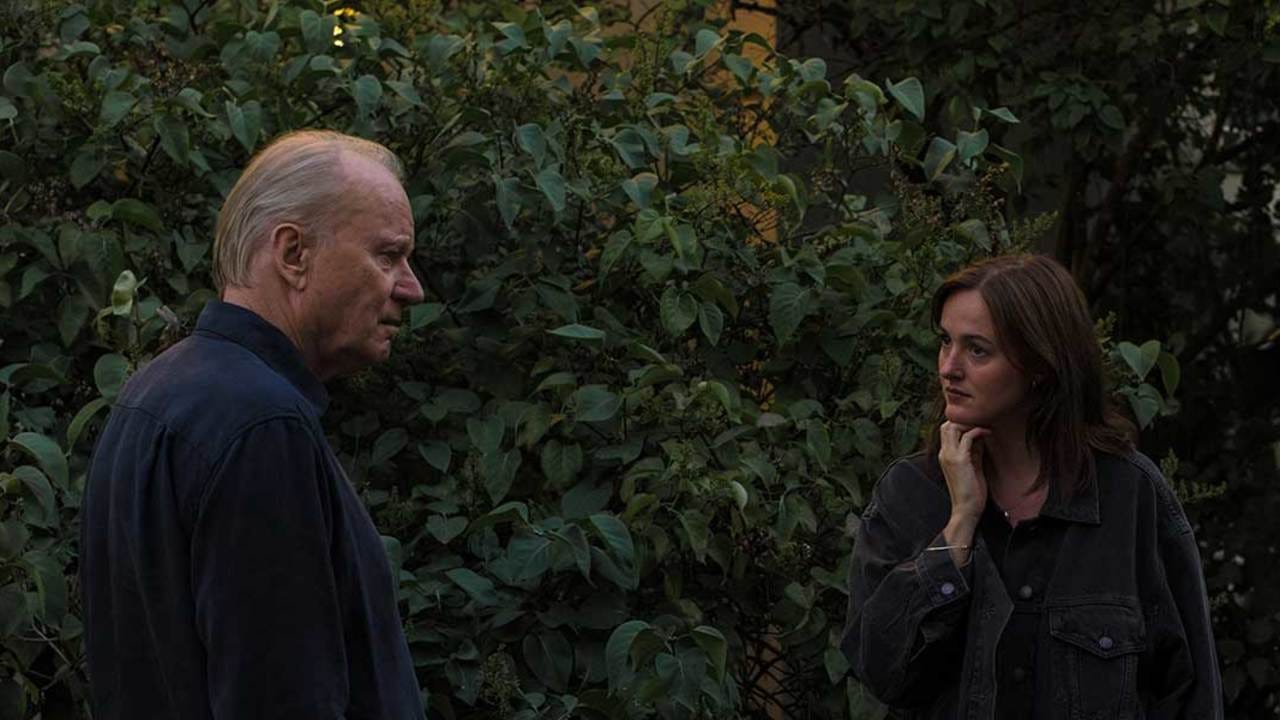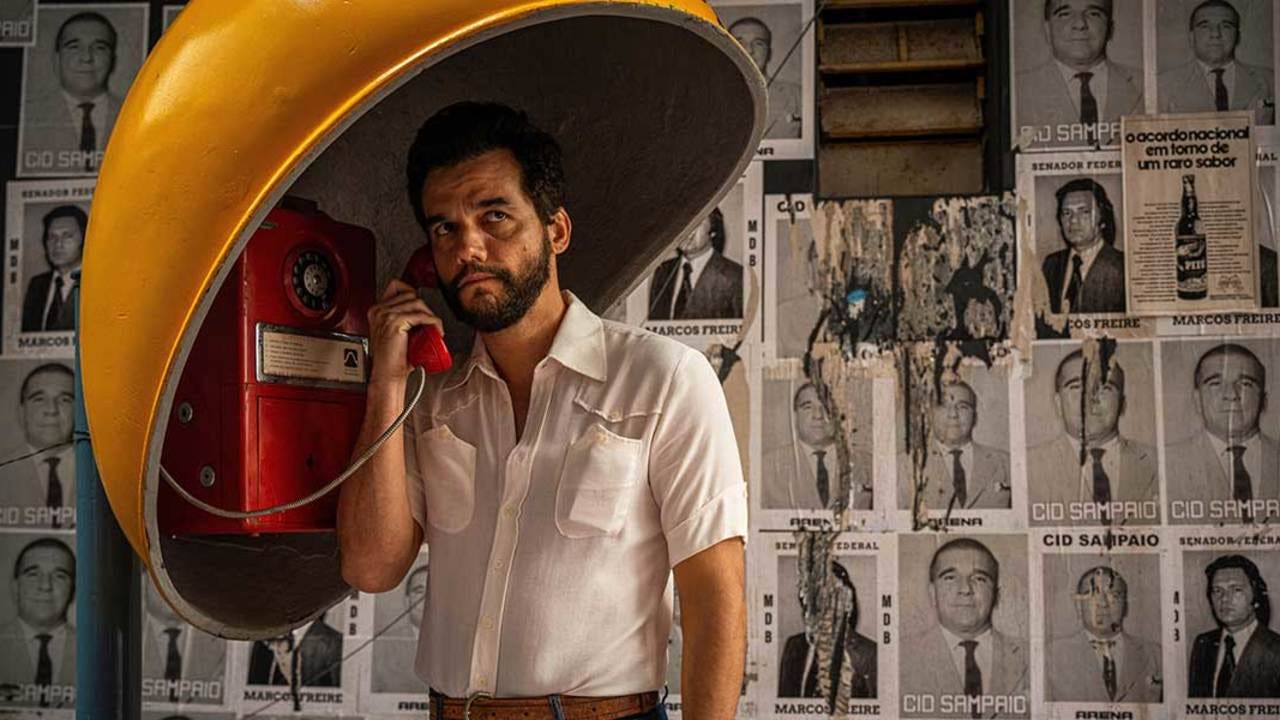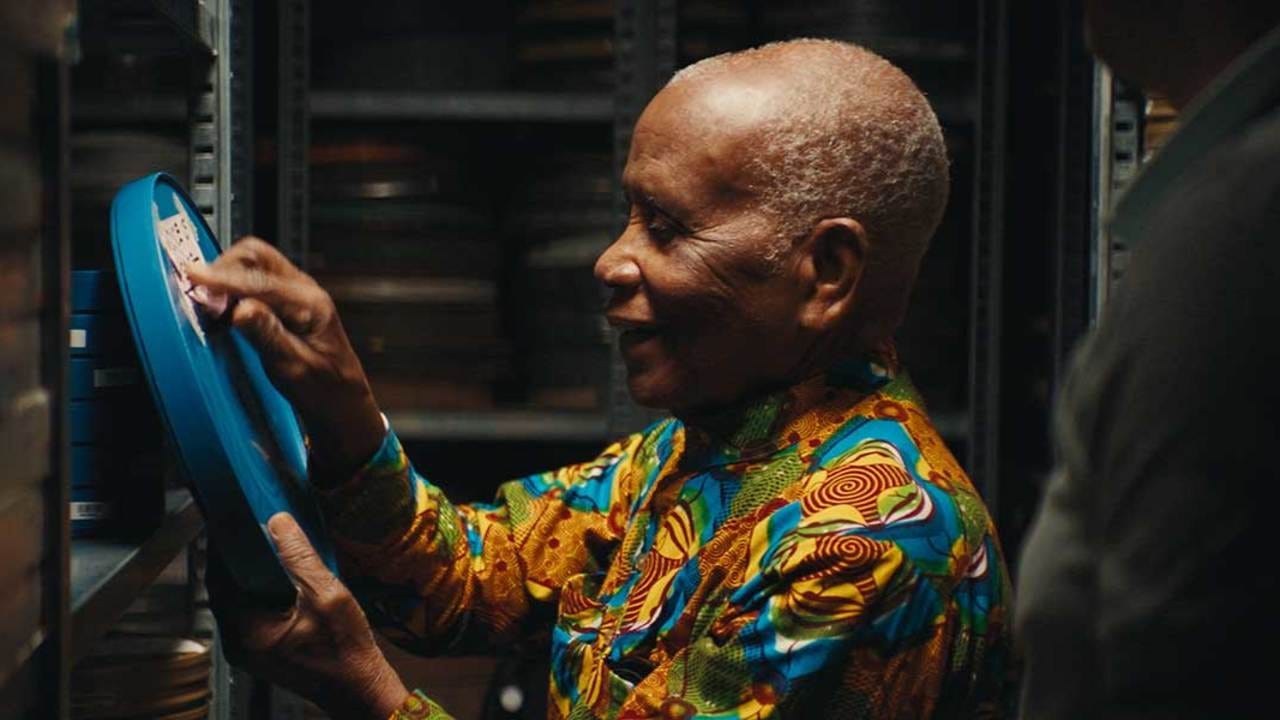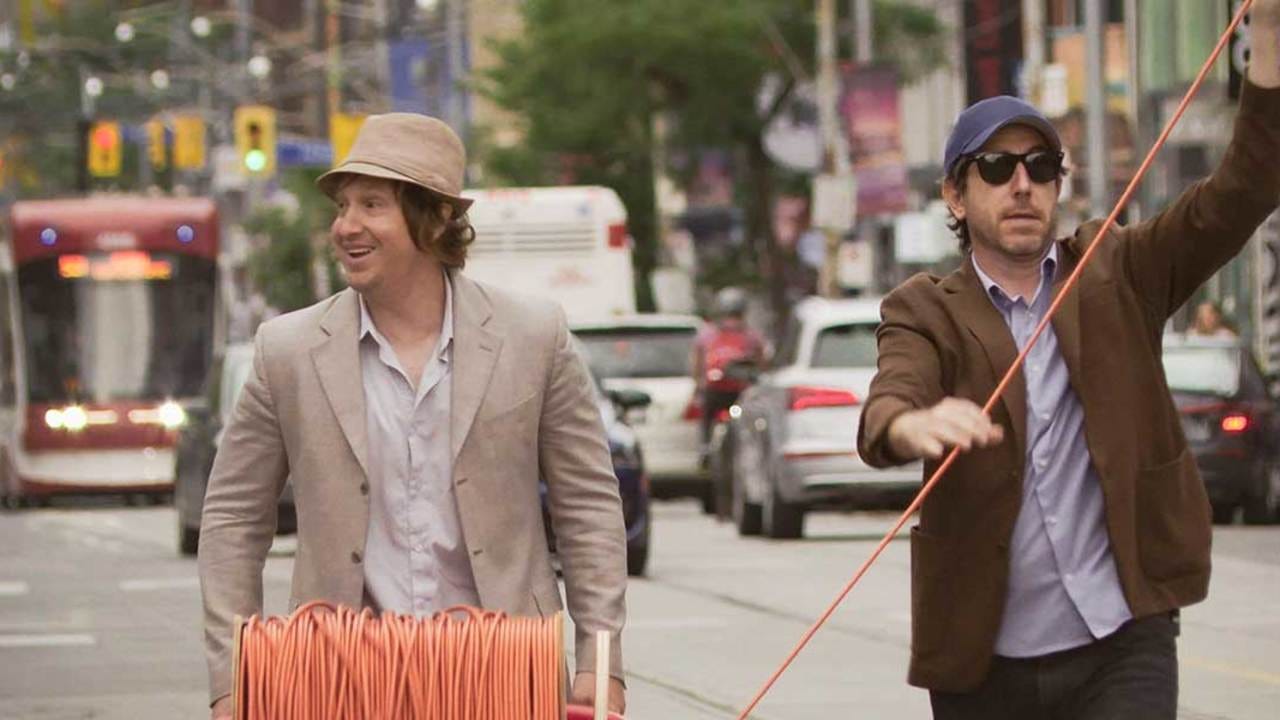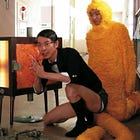TIFF '25 Day One
A few words about good tears
Every year, it’s a bit of a game. What will your first movie be? TIFF likes to pile things up in those first few days, to the particular ire of those who’ve missed Cannes titles. A bunch of good movies, all scheduled for press and industry screenings at the same time, often with only two other equally difficult to plan public screenings. So you make choice. This year, for example, I might have liked to have checked out Lav Diaz’s Magellan, or Mary Bronstein’s If I Had Legs I’d Kick You, but instead I went with Joachim Trier’s awaited Worst Person in the World follow-up, Sentimental Value.
Heading out into the pouring rain, umbrella in hand, I walked my relatively short walk from home to the Scotiabank Theatre, passed through the increasingly absurd security and bag check, and made my way up to the theatre, which was full, but not too full about 20 or 30 minutes before show time. In fact, it never completely filled up, which seemed odd, until I remember that the film played Cannes, has had advanced screenings in numerous cities including Toronto. Of course, I also bumped into friends, like filmmaker Christopher Redmond, who I met earlier this year at Filmspotting Fest in Chicago. I cannot stress how much catching up with friends and hanging out is the best part of TIFF or any other festival. Though, don’t get it twisted. Seeing movies is great, too, even if it comes with the associated stresses of crafting a schedule and then changing and changing and changing on the fly.
I’d settled on Sentimental Value to start my festival, and was glad to have. I’ve been on Trier’s emo Norwegian wavelength for a long time—even interviewed him once at the fest, for his least known, least loved, and least talked-about film—but Worst Person in the World struck a particular chord with me several years ago thanks to its particularly keen insight into the millennial condition. The kind only a Gen Xer could produce. That film became a big deal, so naturally Trier’s next movie was going to involve a levelling up, production-wise. Here that’s most evident in the heavy hitters among the cast. Not only bringing back Worst Person star Renate Reinsve, but adding in Stellan Skargård and Elle Fanning. The film, which is about the testy relationship between a prickly (see: pretentious jerk) filmmaker and his estranged daughters, is intelligent and rich in novelistic detail. It also made me cry, the good tears, which is honestly a great way to get the festival going.
After catching up with yet more friends following the first screening of the day, I made my way back into the Scotiabank for a screening of Raoul Peck’s new documentary, Orwell: 2+2=5. I’m slated to interview Peck about the film, which quite resembles his acclaimed I Am Not Your Negro, about the writer James Baldwin. This new essay film is, of course, about George Orwell, author of Animal Farm and 1984. It features voice-over narration from Damian Lewis, reading the words of Orwell himself, mostly drawn from his essays and diaries written on the island of Jura, off Scotland, during the final years of his life. The film stretches back to Orwell’s childhood and later position with the British colonial police in India, and it uses plenty of clips from various adaptations of the author’s work, but the meat of the film is found in the juxtaposition of Orwell’s forceful anti-totalitarianism of old with footage of the situation around the world, from the U.S. to Gaza to Ukraine to Myanmar. It’s a blunt piece of work, and sometimes lacking in finesse, but as a demonstration of Orwell’s words and ideas, and their increedible relevance, it very much does the job.
The Secret Agent was among my more anticipated films of the festival, partly for the director, Kleber Mendonça Filho (Aquarius, Bacurau), but also the star and the subject. Wagner Moura as a guy hiding out with his kid while hitmen come after him under the oppressive political situation of 1977 Brazil? Sign me up! What I didn’t expect was how this film would actually play. That is, rather than crackling thriller, The Secret Agent is a patient, almost picaresque lens on the colourful but scary and depressing situation for those on the wrong side of a brutal government. I was especially taken with how the film slowly builds its world and characters, so that when shit finally does hit the fan near the end, it carries a weight well beyond the normal excitement of an action film. I cried at the end of this one, too. Those good tears.
I was assigned to review The Eyes of Ghana, Canadian director Ben Proudfoot’s documentary about the cinematographic witness to a revolution, so I made my way down to the TIFF Lightbox, through their impossibly packed lobby, up to the theatre, and was greeted by Ghanaian drummers on-stage, playing away. More movies at the festival should welcome audiences this way. Hell, even movies outside the festival. Then there was the recorded video introduction from the Obamas, Barack and Michelle, who once led The Free World, and now produce shiny looking documentaries. The Eyes of Ghana is particularly shiny, to match the spirit of its central character, the cameraman Chris Hesse, who became the personal cinematographer for Kwame Nkrumah, the revolutionary leader who brought the former Gold Coast out from under British colonial rule. Now in his 90s, Hesse is aiming to digitize and restore the collection of films he recorded of that exciting and tumultuous period. It’s a documentary about the power of cinema as a political force, though it’s held back by key aspects, leaving it intriguing, but lacking in the depth and complexity that could have made it into an essential text.
When the TIFF 2025 lineup was announced, one of the few screenings I knew I had to attend was Midnight Madness opening night selection, Nirvanna the Band the Show the Movie. But being at midnight, and having just seen four movies in a row, the idea of starting my festival with a six-movie day felt unconscionable. So I traded in a ticket for Chandler Levack’s Mile End Kicks, which I will get to at a later screening, and went home to rest. I rested, though did not nap as I had hoped, and then went to hang out for a bit at Embassy in Kensington Market, where my friend Lydia Ogwang was doing one of her regular DJ sets—if you’re from Toronto, keep an eye out! Again, more catch-up. From there I biked down to the Royal Alexandra, watched as Mayor Olivia Chow and Robin Hood: Men in Tights star Cary Elwes walked by me in the theatre, and took my seat for what promised to be a riotous screening.
Boy, did it deliver. It’s the most Toronto movie I’ve ever seen, and specifically, the most millennial Toronto film ever made. It’s an amazing time travel movie, too. And I won’t spoil anything, but it’s also the best Mission: Impossible movie of the year. I spent half the movie just thinking to myself, How the fuuuuuuck?! Oh, and laughing to the point of tears. That, too. A great way to end Day One.
Next:
Previous:


